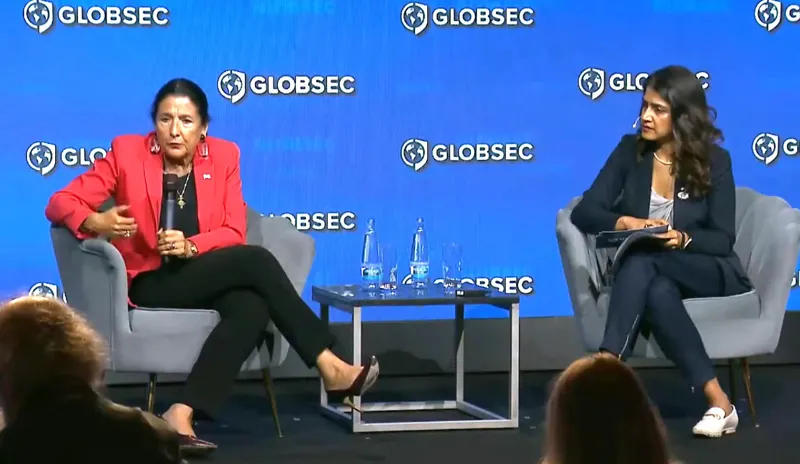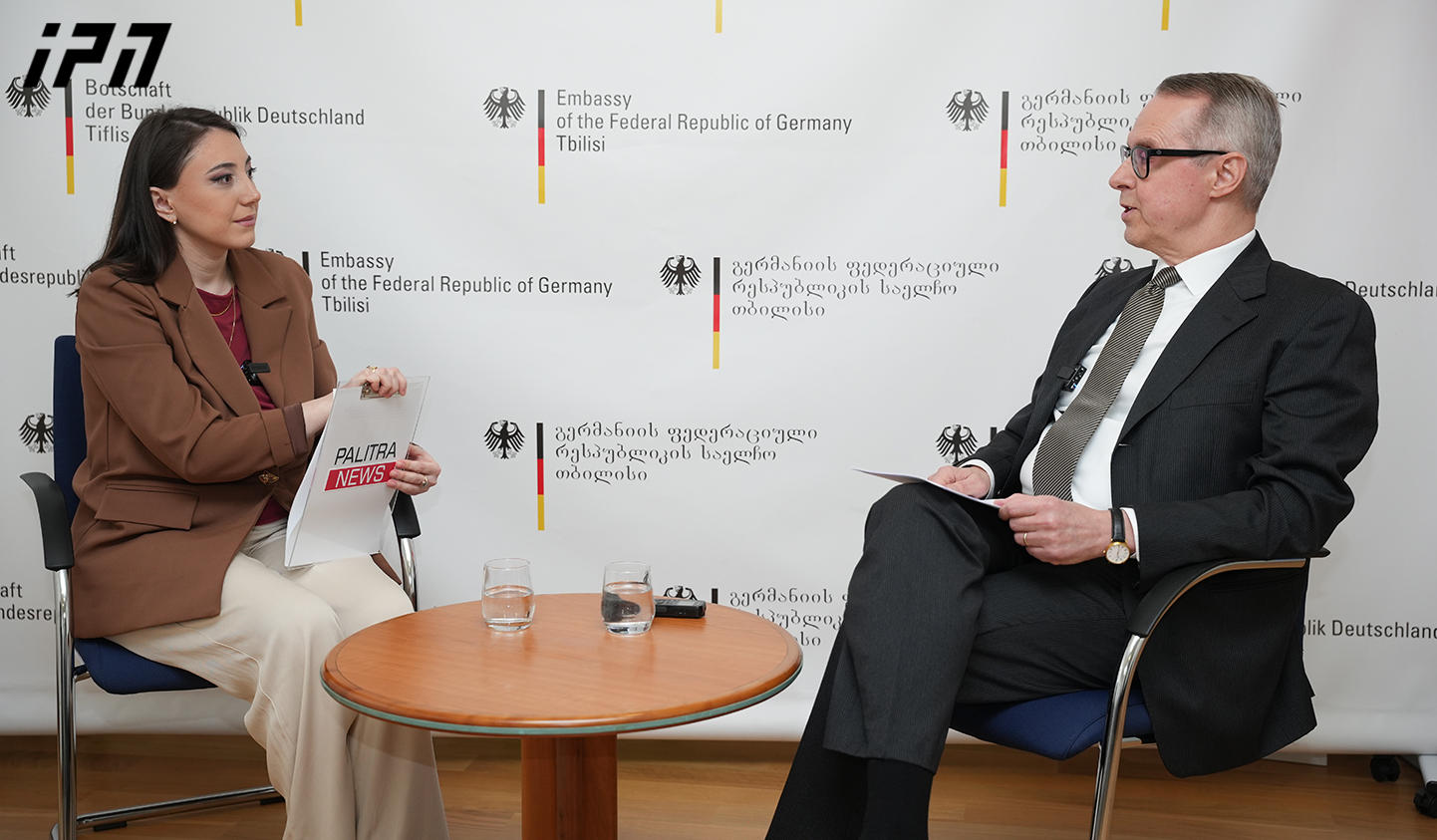Salome Zurabishvili during a discussion at GLOBSEC: Sanctions are very important because in a small country like Georgia, sanctions work – they create tension and weakness within the ruling party and its inner circle

Sanctions are very important because in a small country like Georgia, sanctions work — this is what Georgia’s 5th President, Salome Zurabishvili, said during the "Democratic Future of Georgia" discussion held within the framework of GLOBSEC 2025.
“What we need now is the continuation of the de facto non-recognition policy. We know that this won’t become a de jure non-recognition policy. That’s exactly why I am not referred to as the president, but as the 5th president or in other ways. This is an attempt to navigate the legal aspects of all this. But what’s happening — non-recognition — is very important.
Some individual European countries have imposed sanctions because the European Union, due to lack of consensus, is unable to agree on collective sanctions. This is very important because in a small country like Georgia, sanctions work. Georgia is not Iran, Georgia is not Russia, Georgia is not China — it needs external contacts. Businesspeople, even those connected to the ruling party, still need external contacts. So this is painful — painful for them — and it creates tension and weaknesses within the ruling party and its inner circle. And that is the purpose of sanctions: not to radically change policy, but to try to create cracks,” Zurabishvili stated.
In response to a journalist’s question about when sanctions will become painful for the ruling party, Zurabishvili replied, “They already are.”
“They are already painful for them, but no one can say how quickly and to what extent this will affect the power of a government that is based on repression,” she said.
